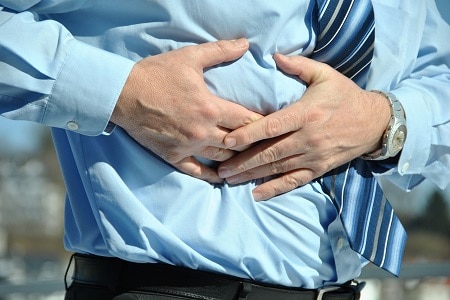by Andrew Pacholyk MS L.Ac
~ Peacefulmind.com
Gastritis refers to inflammation of the stomach lining. There are several types of gastritis with various causes including:
Erosive gastritis – Wearing away of stomach lining. Often caused by NSAID painkillers or excessive alcohol use.
Atrophic gastritis – Breakdown of stomach glands. More common in older adults or autoimmune disorders.
Acute gastritis – Sudden onset, short-term. Typically caused by infections or irritants like alcohol, NSAIDs, corticosteroids.
Chronic gastritis – Ongoing inflammation lasting months or years, often due to H. pylori bacteria or autoimmune response.
Bile reflux gastritis – Stomach inflammation from bile backflow.
Stress gastritis – Severe stress, trauma or critical illness causing stomach damage.
Symptoms depend on the type and can include abdominal pain, nausea, vomiting, bloating, loss of appetite, bleeding, and diarrhea or constipation.
20 Natural Ways to Treat Gastritis
1. Avoid triggers – Stop using culprit medications, tobacco, alcohol and stop eating triggering foods.
2. Follow a bland diet – Go easy on spices, caffeine, fats, alcohol and high-acid foods.
3. Eat smaller meals – Large volumes overstretch the stomach.
4. Limit NSAID use – Use acetaminophen instead which is gentler on the stomach.
5. Stay hydrated – Drink plenty of liquids avoiding sodas and citrus juices.
6. Increase probiotics – Consume probiotic foods like yogurt or take supplements.
7. Reduce stress – Try yoga, meditation, counseling for stress-related gastritis.
8. Apply warmth – Place hot water bottle or heating pad on stomach.
9. Take stomach-soothing supplements – Marshmallow root, chamomile, zinc carnosine.
10. Use licorice root – Soothes stomach lining and decreases acidity.
11. Try mastic gum – Shows promise for reducing H. pylori infection.
12. Seek H. pylori treatment – If confirmed, prescription antibiotic therapy is needed.
13. Avoid tight clothing – Wear loose garments to minimize stomach pressure.
14. Quit smoking – Smoking increases gastritis and ulcer risk.
15. Rinse mouth after meals – Helps prevent acid reflux into esophagus.
16. Sleep on inclined bed – Elevate head 6-8 inches reduces symptoms.
17. Increase foods rich in flavonoids – Like apples, berries, potatoes and leafy greens.
18. Limit problem foods – Spicy, salty, fried, acidic, or gas-producing items.
19. Try DGL licorice – A form of licorice that may reduce inflammation and pain.
20. Discuss medications – If severe, options like antacids, PPIs or cytoprotectants.
See a doctor for evaluation if symptoms persist despite lifestyle changes. Controlling gastritis triggers and utilizing natural remedies can often successfully manage inflammation.




